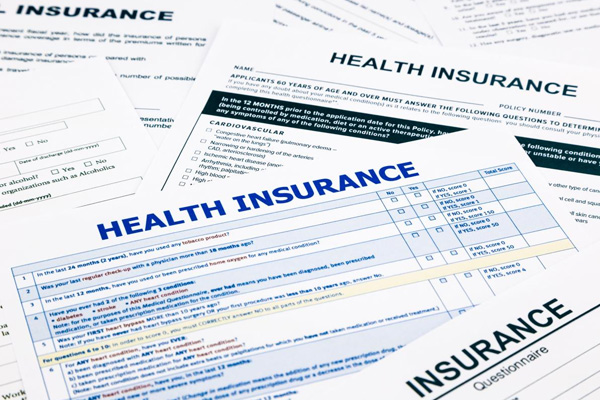

Every person living on the earth have to face two stages in life i.e. “DYING EARLY OR Living too long“.
So for the protection for their family from uncanny circumstances and unidentified risk a bread earner of each and every family must have a coverage which in other terms is called Value of his life.
Life insurance is a great tool that will help your family in meeting their critical needs and lead a comfortable life even when you are not around. This is because the Insurer will pay the Beneficiary of your Policy a predetermined sum of money after your death.
It could also be given if you are bedridden with a critical illness. Life insurance is therefore the most essential insurance Policy that you can have in your savings and investment portfolio.


Life insurance is about caring for your loved ones and your responsibility to provide for those who depend on you. In the end, a purchase of life insurance is a purchase of peace of mind.
Life insurance can also provide cover in the event that you contract a critical illness. Whether you are single, married or have a family, life insurance can provide you with a sum of money to pay for ongoing bills, fees, medical fees and other household costs, leaving you or your family with extra savings for other things in life.
We all want to provide the very best for our families, but sometimes accidents or sudden illnesses can get in the way of our plans. Without an income, you and your family's plans for the future could turn into a distant memory. Life insurance, enables you to provide for the people you care about who depend on you financially. With the sum of money you would get from your life insurance, holidays, educational opportunities, recreational activities and living in a comfortable home could still be a reality. The life style of your family could continue with minimal compromise, and you can ensure you continue to provide for your child's future care and fund their opportunities

This type of life insurance policy is a called as pure insurance, he has given entitlement to receive the money, in the case of his/her death, after a certain period of time as per his coverage. These policies can be taken for 5, 10, 15, 20 or 30 years.

In an endowment policy, periodic premiums are received by the insured person and a lump sum is received either on the death of the insured or once the policy period expires.On maturity sum assured with the bonus is paid

This policy offers the payment of partial survival benefits (money back), as is determined in the insurance contract, while the insured is still alive. In case the insured dies during the period of the policy, the beneficiary gets the full sum insured. for eg in children money back if the proposer dies during the tenure all the premium are paid by the insurance company and child will get maturity value as per the term if wop rider is opted.

This is when a group of people have been named under a single life insurance policy. It is popular for an employer or a company to add employees under the same policy. Each member of the group has a certificate as legal evidence of insurance.

ULIPs (Unit Linked Insurance Plan) offer the insured the double benefit of protection from risk and investment opportunities. ULIPs are linked to the market where the insured’s money is invested to help earn additional monetary benefits


The term ‘Health Insurance’ relates to a type of insurance that essentially covers your medical expenses. A health insurance policy like other policies is a contract between an insurer and an individual / group in which the insurer agrees to provide specified health insurance cover at a particular cost.
Everyone of us should buy health insurance and for all members of our family, according to our needs. Buying health insurance protects us from the sudden, unexpected costs of hospitalization (or other covered health events, like critical illnesses) which would otherwise make a major dent into household savings or even lead to liability.

Health Insurance Plans are segregated into three categories, firstly the Mediclaim Plans by Non-Life or General Insurance Companies, secondly the Hospitalization Cash Policy by both Life & Non-Life Insurers and thirdly the Critical Care Plans offered by both Life & Non-Life Insurers.
Mediclaim Policy is basically a reimbursement plan offered by General Insurers wherein the insured gets reimbursed of the total bill amount of the medical expenses to the extent of an agreed sum assured. It includes the room charges, ICU charges, surgery & doctor charges etc. It includes a lot of exclusions which the policy holder must read before buying the Mediclaim. The Mediclaim includes the following two further categories :

It is a very common family plan these days which covers your entire family under one premium payment giving coverage to the family members together. This plan is being offered by almost all the General Insurance Companies with a specific criterion of covering individuals in the age group between 90days and 55years.It is a plan where the mediclaim cover can be utilized with any member of the family if hospitalized.
It is the second variant of Mediclaim which covers a group of individuals simultaneously. This form of insurance includes the category of Employer’s Health Insurance Cover wherein the sum assured normally varies between Rs. 15,000 and Rs. 5, 00,000.
It is offered by both Life & General Insurers covering an individual for certain specified critical illnesses like cancer, stroke etc. This is also offered as a rider by Life Insurance companies for quite some time now attached to their Life Insurance Plans. You must take a cover either as a rider or as a standalone plan in your portfolio.
A Critical Illness benefit policy provides a fixed lumpsum amount to the insured in case of diagnosis of a specified illness or on undergoing a specified procedure. Usually, once this lump sum is paid, the plan ceases to remain in force. There are also other types of products, which offer lumpsum payment on undergoing a specified surgery (Surgical Cash Benefit), and others catering to the needs of specified target audience like senior citizens.
It is offered by both Life & General Insurers covering an individual for certain specified critical illnesses like cancer, stroke etc. Health Insurance products are eligible for tax benefits under section 80D of the Income Tax Act, 1961. Premium paid under health insurance holds a tax deduction up to Rs 15,000 for you, your spouse and dependent children.
Further more you can also claim another Rs. 15, 000 for tax deduction for your parents, in case of senior citizens (65 years or more) the above deductions are increased to Rs. 20,000
For instance a person wants a health insurance for himself, his spouse & their children, the Family Floater plan offers insurance coverage to the entire family under one premium payment. Let’s take an example wherein the person insures himself, his spouse & the dependent children with the individual insurance plans with a sum assured of Rs. 1 lacs each, he ends up paying premium ranging between Rs. 1000 - Rs. 2000 for each family member.On the other hand if the person would have opted for the family floater plan with the sum assured of Rs. 3 lakhs, the total premium would surely be less than the separate premium payments in individual health insurance plans.
Cashless settlement implies that an individual doesn’t have to settle a hospital bill out of his pocket; rather the bill gets settled directly by the insurance company. When you buy a Health Plan you are issued a Health Card along with the policy documents which would entitle you to get cashless claim at any of the company’s network hospitals.
This facility is not available if you take the treatment outside the network.
You should walk into a network hospital & get the treatment done & the bills paid through the Health Card. In case of hospitalization you need to give the card number to the network hospital, you must pre-authorize from the TPA (Intermediary between the Insurance Company & the hospital) & will process the cashless settlement after the verification of your policy details. You should know the formalities required for cashless settlement as some insurance companies are required to be notified 48 hours before hospitalization.
If you don’t opt for cashless settlement, you need to settle bills at the hospital and get them reimbursed later.
There are further limits to this feature varying from company to company
They are normally covered up to Rs. 1000
Day-Care expenses such as, Dialysis & Radiotherapy etc.
Pre & Post Hospitalization Expenses which normally are 30 days prior and 60 days after hospitalization
Cashless Hospitalization is offered by almost all Non-Life Insurers.
ICU charges, doctor, consulting, anesthetist and surgeon fees, operation and other diagnostic and surgical material costs are covered

All Rights Reserved by Kapadia Consultants
Designed by Mirackle Solutions